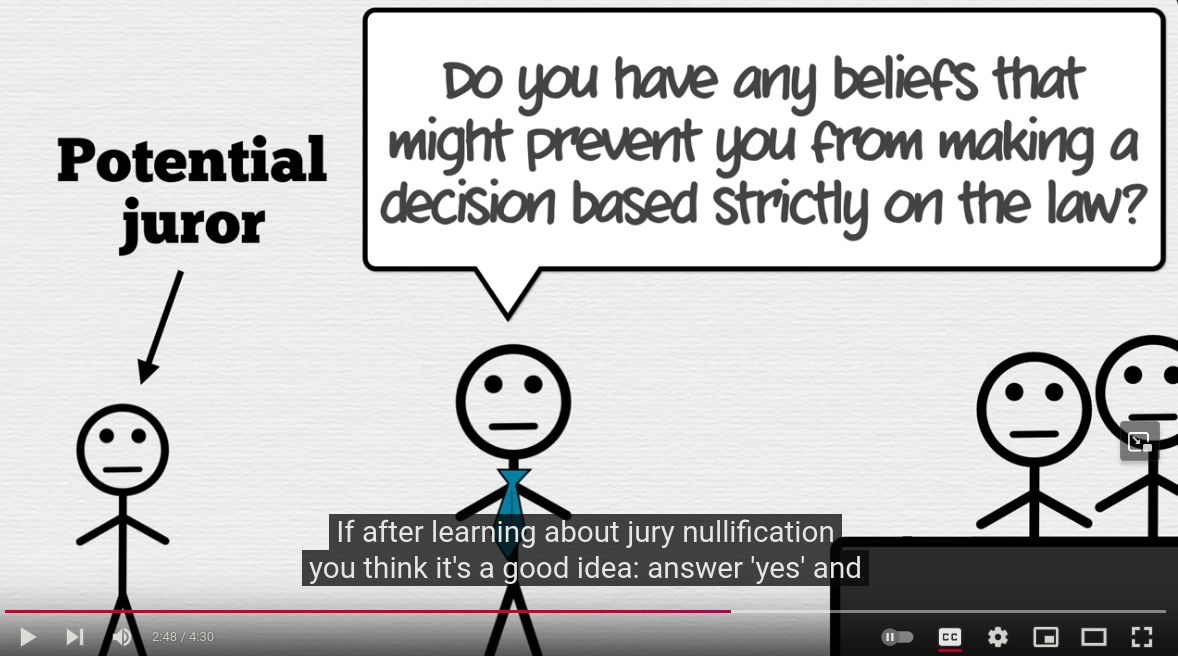I like that, but there is a major problem with it, and it’s around 2:49 in the video:
Do you have any beliefs that might prevent you from making a decision based strictly on the law?
Grey suggests that saying “No” with intent to nullify is lying, and therefore perjury. He is wrong. Where legislated law and constitutional law come into conflict (and they do in all cases of nullification), it is your duty to strictly follow constitutional law. You must judge the case as a layperson. You are constitutionally obligated to follow your own sense of rationality. That means if legislated law provides an undesirable outcome, you are obligated to “strictly follow [constitutional] law”, and refuse to convict under a lower law.
I can honestly claim to have no beliefs that would prevent me from making a decision based strictly on the law. The 6th Amendment is part of the law, and the 6th amendment requires and empowers me (as a juror) to make whatever decision I determine is appropriate.
We aren’t talking about the decision. We are talking about voir dire. You certainly can be charged and convicted of perjury if you lie during voir dire.
But again: it is not a lie to remember that the 6th Amendment right to a trial by jury of peers (as opposed to professional jurists) is constitutional law. It supersedes any legislated law, or any directive provided by any court. I hold no beliefs that might prevent me from making a decision strictly in accordance with the law.
I like that, but there is a major problem with it, and it’s around 2:49 in the video:
Grey suggests that saying “No” with intent to nullify is lying, and therefore perjury. He is wrong. Where legislated law and constitutional law come into conflict (and they do in all cases of nullification), it is your duty to strictly follow constitutional law. You must judge the case as a layperson. You are constitutionally obligated to follow your own sense of rationality. That means if legislated law provides an undesirable outcome, you are obligated to “strictly follow [constitutional] law”, and refuse to convict under a lower law.
I can honestly claim to have no beliefs that would prevent me from making a decision based strictly on the law. The 6th Amendment is part of the law, and the 6th amendment requires and empowers me (as a juror) to make whatever decision I determine is appropriate.
Earlier in the video he stated that the jurors cannot be punished for their decision, this applies if the outcome results in perjury.
We aren’t talking about the decision. We are talking about voir dire. You certainly can be charged and convicted of perjury if you lie during voir dire.
But again: it is not a lie to remember that the 6th Amendment right to a trial by jury of peers (as opposed to professional jurists) is constitutional law. It supersedes any legislated law, or any directive provided by any court. I hold no beliefs that might prevent me from making a decision strictly in accordance with the law.
Wait, that isn’t just a term from “My Cousin Vinny”‽